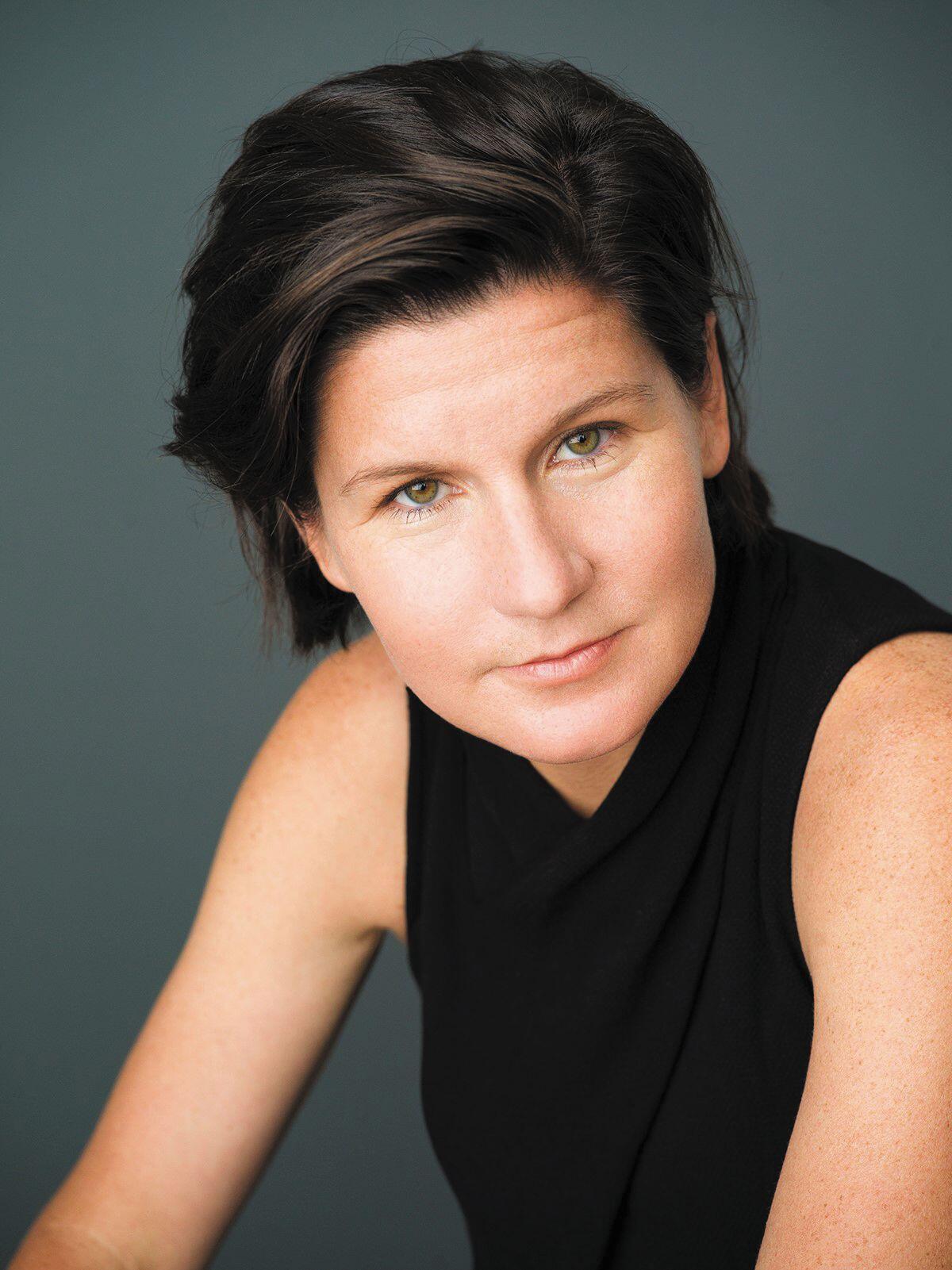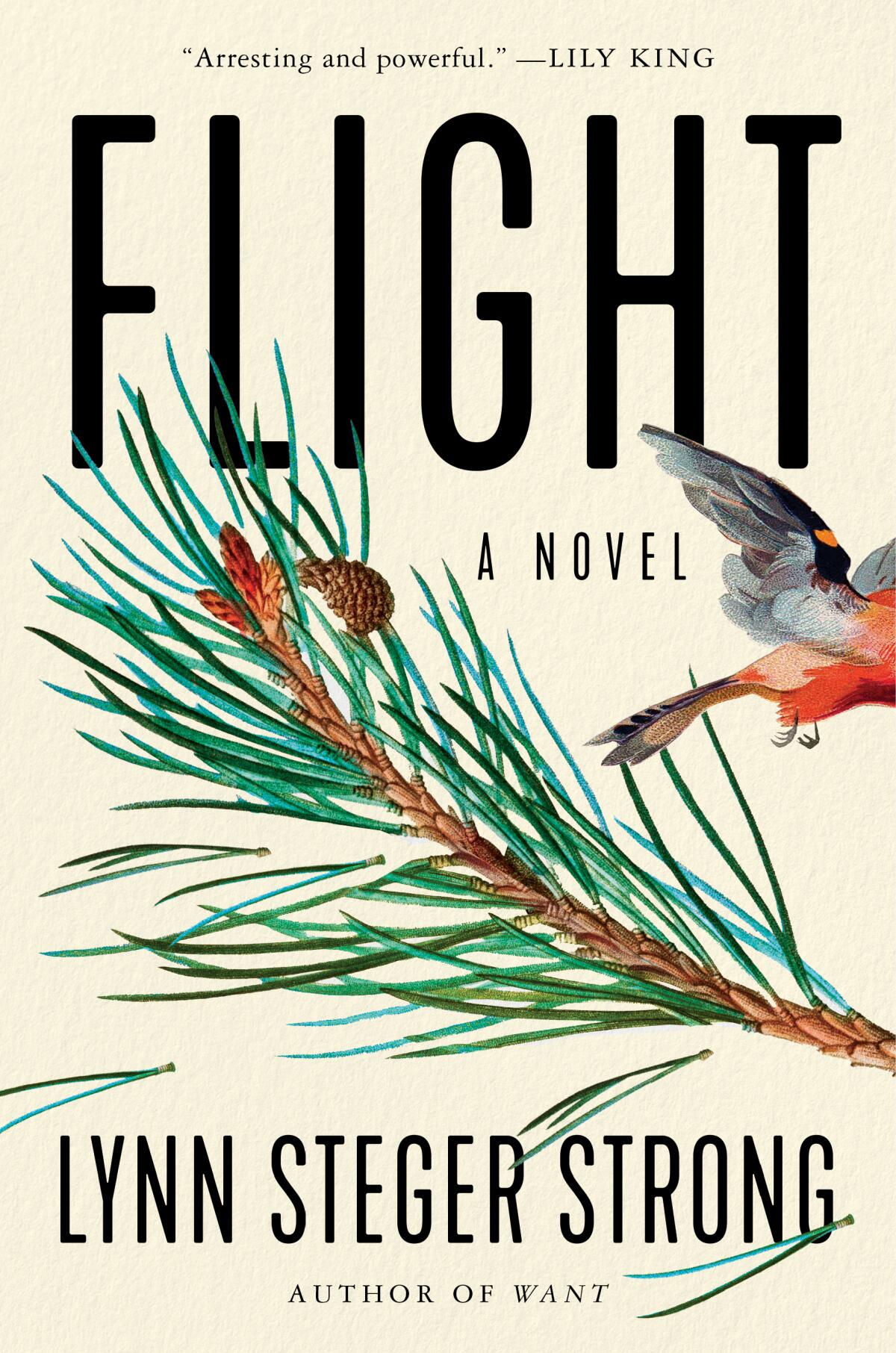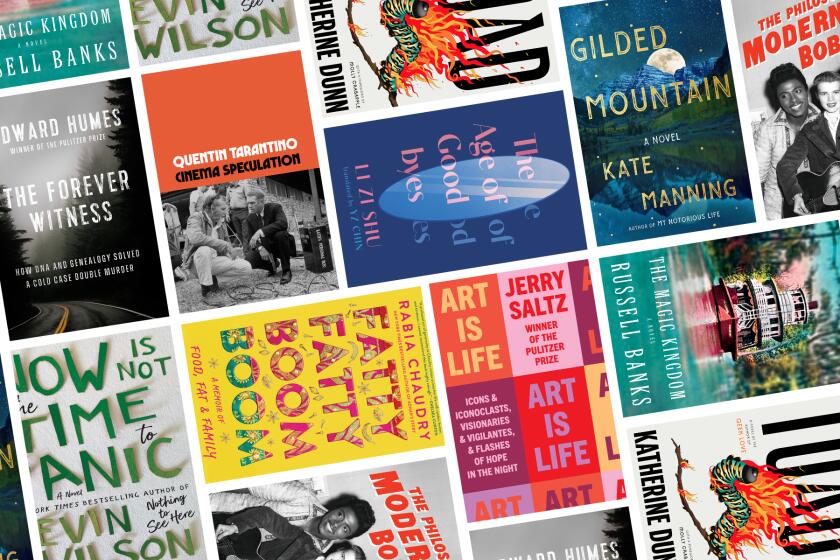Review: How a new novel complicates the holiday get-together plot

- Share via
On the Shelf
'Flight'
By Lynn Steger Strong
Mariner: 240 pages, $28
If you buy books linked on our site, The Times may earn a commission from Bookshop.org, whose fees support independent bookstores.
Three siblings and their partners have gathered for the December holidays in an unspecified upstate New York town, a short walk from the banks of the Hudson River. What matters most about this location is that it allows for snow, occasionally lots of it and sometimes even on Christmas. In her new novel, “Flight,” Lynn Steger Strong employs winter’s bounty to great effect, laying the groundwork for a plot that is decidedly, deliberately old-fashioned — in the best way.
The stage is set as three siblings prepare to assemble for the holidays with their nuclear broods: Kate has three children with husband Josh; Martin has two with wife Tess; Henry and his wife, Alice, who are hosting this year, are reluctantly childless. All are coping with the too-recent loss of their mother, Helen, as well as they can — with behaviors ranging from cooking, tree-trimming and dress-up to drinking, sniping and meddling.
Except for Josh. His contribution to the festivities involves disappearing outside to build an igloo for the kids, something the other adults find frivolous, thinking he is shirking responsibilities: “at least this venture, unlike so many of his others, has something vaguely to do with parenting.” Attentive readers won’t be surprised to find that the igloo plays a role in the story’s climax, although they may be surprised by how easily their attention has been diverted by the author’s elegant scene swiping.
The central tension among Helen’s offspring has to do with the matriarch’s house in Florida — location again unspecified, though it is clearly idyllic: Henry, a multimedia artist preoccupied with species collapse, would be happiest if the property could be sold to a conservation nonprofit as a refuge for birds known as snail kites. Martin, his longtime position in academia under threat in the wake of a #MeToo-adjacent scandal, hopes to make as much money in the sale as possible.
In Lynn Steger Strong’s ‘Want,’ a writer, teacher and mother faces up to her own privilege and the precariousness of her middle-class life.
Kate has something entirely different in mind: She wants to move there full time with her husband and kids. But she resents having to ask. She wants her siblings “to look at her and see she needs it, to intuit, without her and Josh having to admit it, that they are running out of money.”
In her previous novel, “Want,” Strong outlined the precarious state of the creative class — a different sort of species collapse — via one struggling family. Here too, money or its lack has the ubiquitous force of gravity. Yet it’s her facility with the details of habit and personality that breathe life and plot into this novel.

Like the birds that form the book’s leitmotif, Strong’s writing soars effortlessly from characters’ histories into their present situations, alighting here on the two brothers, there on the three women, then back to the age-old chaos of running children through the gantlet of dinner, baths and bed. She could easily have stuck with this family and its ultimately genteel concerns: Tess is a high-powered attorney, Kate a full-time parent, Josh a trust-fund baby whose money has dwindled. But Strong is up to more than that.
Henry and Alice seem to occupy a different space. They met in Manhattan, during art school, where Alice made a big splash that merited a review in the New York Times. Henry, who didn’t reach those heights, becomes the artistic workhorse, spending most of his upstate time crafting detailed birds for a project he keeps literally under wraps — covering his creations with a sheet. The couple thought they would have children, but Alice experiences a wrenching series of miscarriages and realizes that depleting their savings for IVF means she’ll have to find paying work.
Fortunately, she had double-majored in art and social work; after a few tests and certifications, she can become a caseworker in the town where Henry has inherited the house from his parents. We begin to learn about one of her charges from Alice’s perspective; she has great concern and affection for a 7-year-old girl named Maddie who is back with her 23-year-old mother, Quinn, after a spell in foster care following Quinn’s heroin overdose.
His new novel, ‘Crossroads,’ is extraordinary, immersive, even fun. But it makes you wonder what Franzen might accomplish if more were at stake
By allowing us to meet Maddie through Alice’s eyes, Strong pulls off the equivalent of an upside-down swoop, leading readers to believe she might save mother and daughter. But Alice, even if well intentioned, is needy. She is one of the best literary examples of Henri Nouwen’s “wounded healer” in recent memory, her determination to play by the rules outdone only by her inability to respect any boundaries. In a lopsided way, she has become attached to Maddie, and to Quinn.
As Quinn and Maddie take tentative steps to rebuild their tiny family unit, we cut back and forth between them and Christmas Day preparations back at the big house. The absent Helen looms weirdly large for someone we learn about only through reminiscences. She had a particular mix of apples for her pies, particular views on how everyone should dress for meals. To be honest, Helen — whom everyone lauds for her household management — sounds like a control freak. At one point during the serving of Christmas dinner, we learn that Kate is wearing “a rich green velvet” dress, a gift from her mother, that “pulls and braces, tight across her chest and back.” The mother’s idea of a good fit doesn’t work for the daughter.
No wonder the conversations among the women — round-robin exchanges between Tess and Kate, Alice and Quinn, Tess and Alice — are the meatiest nodes of “Flight.” Like the bird presented at the table, women tend to be carved up in our society according to our needs — here a soft bosom of comfort, there a sinewy wing of discipline. As Helen’s children grapple with her absence, they want to claim the parts of her they loved best while discarding the messiest bits.
All of the assembled will wind up having to deal with a very big mess after Quinn fearfully calls Alice to announce that Maddie has disappeared. Alice and Quinn become search-party buddies and learn more about each other than they ever would have otherwise. Mutual empathy might engender a thaw, hope for the future. But the toughest lesson Strong shares in “Flight” is that not every story can have a satisfying conclusion. True reconciliation, safety, stability, fulfillment: These are destinations along a flight path forever uncertain — though shot through, like this novel, with moments of transcendence.
Bethanne Patrick’s November highlights include musings from Dylan, Tarantino and Jerry Saltz, the returns of Russell Banks and Katherine Dunn and more.
Patrick is a freelance critic who tweets @TheBookMaven.
More to Read
Sign up for our Book Club newsletter
Get the latest news, events and more from the Los Angeles Times Book Club, and help us get L.A. reading and talking.
You may occasionally receive promotional content from the Los Angeles Times.










